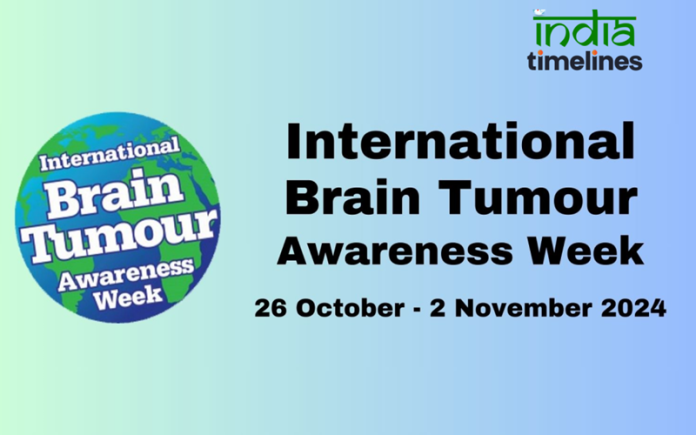
International Brain Tumour Awareness Week is a significant event aimed at raising awareness about brain tumors, a condition that affects thousands of individuals worldwide. This initiative not only seeks to inform the public about the various types of brain tumors but also highlights the importance of research, early detection, and support for patients and their families. In 2024, this week-long observance promises to bring even more focus to this critical health issue, facilitating discussions, sharing knowledge, and fostering a community of support for those impacted by brain tumors.
Understanding Brain Tumours
What is a Brain Tumour?
A brain tumor is an abnormal growth of cells within the brain or surrounding tissues. These tumors can be classified into two main categories: benign (non-cancerous) and malignant (cancerous). The type, location, and size of the tumor can significantly influence the symptoms, treatment options, and prognosis.
Types of Brain Tumours
Brain tumors can arise from various types of cells, leading to a wide range of tumor types, including:
- Gliomas: These tumors develop from glial cells and can be further categorized into subtypes like astrocytomas, oligodendrogliomas, and ependymomas.
- Meningiomas: Often benign, these tumors arise from the meninges, the protective layers surrounding the brain.
- Pituitary Tumors: These affect the pituitary gland and can lead to hormonal imbalances.
- Metastatic Tumors: These tumors originate in other parts of the body and spread to the brain.
Symptoms
Symptoms of brain tumors can vary widely based on the tumor’s size, location, and growth rate. Common symptoms include:
- Headaches: Persistent or severe headaches, which may be worse in the morning or when bending over.
- Seizures: New onset seizures in adults can be a warning sign of a brain tumor.
- Cognitive Changes: Difficulties with memory, concentration, or decision-making.
- Visual or Auditory Disturbances: Changes in vision or hearing, including blurred vision or ringing in the ears.
- Motor Symptoms: Weakness or numbness in the limbs, difficulty with coordination or balance.
Risk Factors
While the exact cause of brain tumors is still under research, several risk factors have been identified:
- Genetic Factors: Certain inherited syndromes, such as neurofibromatosis, Li-Fraumeni syndrome, and tuberous sclerosis, can increase the risk.
- Exposure to Radiation: Prior radiation treatment to the head may increase the likelihood of developing a brain tumor.
- Age and Gender: Some brain tumors are more common in children, while others predominantly affect adults. Certain types are also more prevalent in males than females.
The Importance of Awareness
Why is Brain Tumour Awareness Crucial?
Awareness plays a vital role in combating the stigma and misinformation surrounding brain tumors. By increasing public understanding, we can:
- Encourage Early Detection: Awareness campaigns can help individuals recognize the symptoms of brain tumors, prompting them to seek medical attention sooner.
- Support Research Efforts: Increased awareness can lead to more funding and support for research initiatives focused on brain tumors, ultimately leading to better treatments and outcomes.
- Foster Community Support: Sharing stories and experiences can help patients and their families feel less isolated, promoting a sense of community and understanding.
Global Impact
International Brain Tumour Awareness Week serves as a platform for individuals, organizations, and healthcare professionals to come together and share knowledge. The event facilitates educational seminars, community events, and social media campaigns aimed at reaching a wider audience. It encourages individuals to participate in activities that promote awareness, such as fundraising, advocacy, and support group meetings.
Events and Activities for 2024
Community Engagement
In 2024, various activities are planned worldwide to engage communities and raise awareness about brain tumors. These include:
- Educational Seminars: Hosting talks and workshops led by medical professionals to educate the public about brain tumors, their symptoms, and treatment options.
- Fundraising Events: Organizing walks, runs, or other fundraising activities to support brain tumor research and patient support services.
- Social Media Campaigns: Using hashtags and campaigns on platforms like Twitter, Facebook, and Instagram to spread awareness and share personal stories.
- Support Groups: Facilitating meetings for patients and families affected by brain tumors to share their experiences and support one another.
Collaboration with Organizations
Numerous organizations are dedicated to brain tumor research and support, and many will be involved in events during International Brain Tumour Awareness Week. Collaborations may include:
- The Brain Tumour Charity: Hosting events and providing resources for patients and families.
- National Brain Tumor Society: Engaging in advocacy efforts and supporting research initiatives.
- Global Brain Tumour Alliance: Promoting awareness on an international scale and fostering collaboration among various organizations.
The Role of Research
Advancements in Treatment
Research plays a pivotal role in improving the diagnosis, treatment, and management of brain tumors. Significant advancements in recent years include:
- Targeted Therapies: Development of drugs that specifically target cancer cells while sparing healthy tissue.
- Immunotherapy: Utilizing the body’s immune system to fight cancer, with promising results in some brain tumor patients.
- Precision Medicine: Tailoring treatment plans based on the genetic makeup of the tumor, leading to more effective therapies.
The Need for Funding
Despite the progress made, funding for brain tumor research remains critical. Many researchers rely on donations and grants to continue their work, making awareness events essential for raising both funds and interest in this area of health care.
Supporting Patients and Families
Resources and Support Networks
International Brain Tumour Awareness Week also emphasizes the importance of providing resources and support for patients and their families. This includes:
- Patient Advocacy Groups: Organizations that offer guidance, support, and resources for navigating the challenges associated with a brain tumor diagnosis.
- Counseling Services: Providing emotional support and counseling for patients and their loved ones to cope with the psychological impacts of a brain tumor diagnosis.
- Online Communities: Facilitating platforms where individuals can connect, share experiences, and find support from others facing similar challenges.
Stories of Hope
Personal stories of individuals who have battled brain tumors can be incredibly powerful. These narratives not only inspire hope but also serve as a reminder of the importance of awareness and research. Highlighting survivors and their journeys can motivate others to seek help, raise awareness, and contribute to the cause.
India Time Lines
Conclusion
International Brain Tumour Awareness Week 2024 presents an invaluable opportunity to shed light on the challenges faced by those affected by brain tumors. Through education, community engagement, and support, we can make strides in awareness, advocacy, and research. By working together, we can improve the lives of patients and families impacted by brain tumors, fostering a sense of hope and resilience in the face of adversity. Let us unite in raising our voices, sharing our stories, and paving the way for a future where brain tumors are better understood, treated, and supported.
Call to Action
As we approach International Brain Tumour Awareness Week in 2024, consider how you can contribute to the cause. Whether through participating in events, donating to research initiatives, or simply sharing information, your involvement can make a difference. Together, we can create a brighter future for those affected by brain tumors and promote a culture of awareness, support, and hope.



































